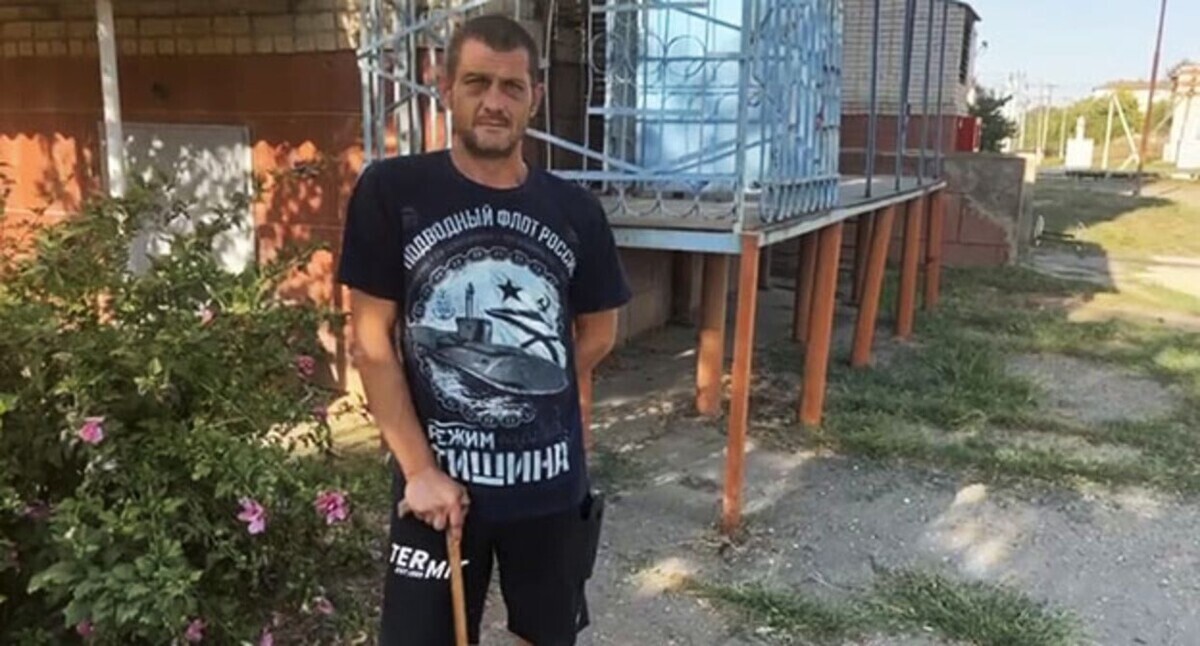Rights defenders treat Valko’s verdict as incorrect law interpretation
A court in Kuban (Krasnodar Territory) has explained the lenient sentence in the case of the beating up of Fyodor Valko by the fact that the defendants had no "desire to cause particular sufferings to the victim"; however, human rights defenders treat the interpretation of the law by the court as erroneous. The convicted law enforcers have appealed against the sentence, while Valko will seek to recognise their actions as torture.
In August 2023, Fyodor Valko, a guardsman was detained by law enforcers on suspicion of stealing a conveyor belt from a factory. According to Fyodor, law enforcers had beaten him up, including with a chair, until he lost consciousness. Doctors diagnosed him with multiple abrasions, bruises, a haemorrhage in the eye and a closed fracture of three vertebrae processes. Two law enforcers were arrested within the case of power abuses. In December 2023, Valko said that four months later, the consequences of the beatings prevented him from working.
Only at announcement of the verdict, did the advocates learn that the court qualified the law enforcers’ actions under the milder part of the article on abuse of power, excluding the torture clause from the final ruling, the “Team against Torture” (TaT)* has reported today.
"Torture differs from ordinary violence by its significant duration and the desire of the perpetrator to cause severe pain and physical suffering to the victim. Torture means perpetrators’ mockery and inhuman behaviour. The court has failed to establish the defendants' desire to cause special physical and moral sufferings to the victim," the report quotes the court ruling.
In particular, the court cited as an argument in favour of a milder sentence the fact that after the beating, policemen removed Fyodor Valko's handcuffs and offered him to wash up.
Valko will appeal against the ruling and seek to have the convicted law enforcers punished under the article on abuse of office with the use of torture, human rights defenders have reported.
"When trying to distinguish between "violence" (Part 3 of Article 286) and "torture" (Parts 4 and 5 of the same article of the Russian Criminal Code), judges are actually relying on subjective ideas. In their perception, torture is something that goes beyond "ordinary" violence and causes fear. However, this approach is closer to the everyday perception than to legal logic. Meanwhile, the overwhelming majority of the actions for which law enforcers are tried in Russia today – if we are guided by the international legal norms – should be classified as torture," Sergey Babinets, the TaT* head, has commented.
This was originally published on the Russian page of 24/7 Internet agency ‘Caucasian Knot’ on June 5, 2025 at 04:41 pm MSK. To access the full text of the article, click here.
*The "Team against Torture" (TaT, formerly the "Committee against Torture" – CaT) was created by the lawyers who had earlier worked for the CaT, which was included into the register of the NCOs performing the functions of foreign agents.

